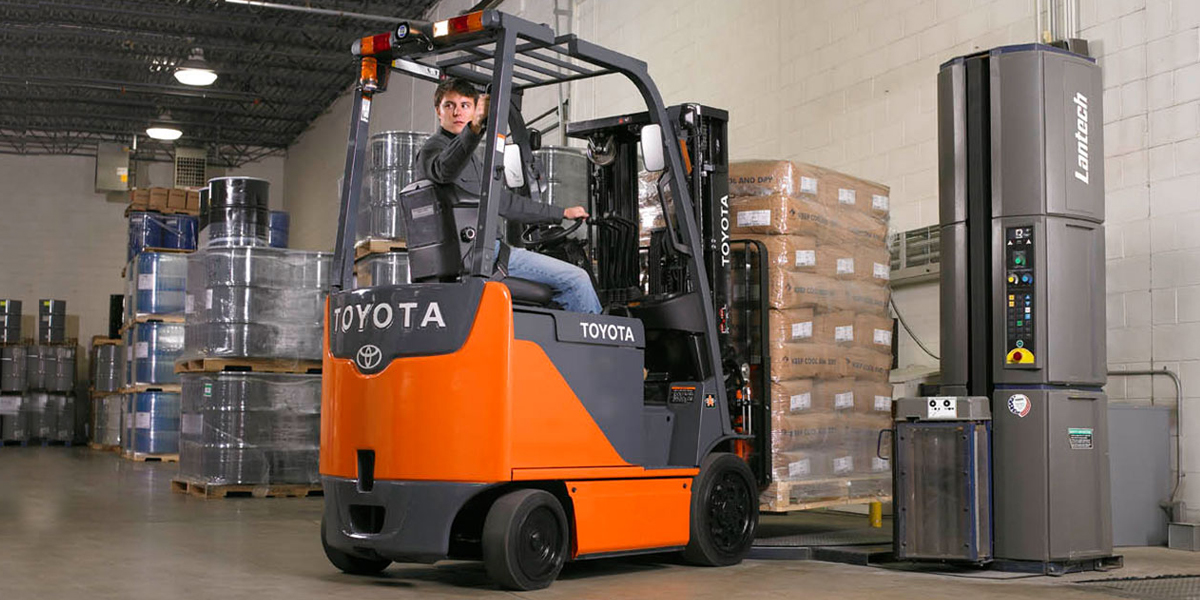Forklift Fuel Options & Considerations
Electric forklifts and internal combustion forklifts, have a constant debate that surrounds them.
While some may consider electric forklifts to be a better long term investment, the advantages of diesel forklifts cannot be denied. Either way, gauging the benefits and deficits of either fuel type is not a decision that can be made only for new companies. Even established companies that have been using petrol forklifts, would also benefit from weighing up the advantages and disadvantages of each fuel type. Even more so if there is a focused aim towards reducing their carbon footprint.
Electric Forklifts
There has been a paradigm shift in the forklift industry, with a large number of sales accounted for by electric forklifts. The number is so vast that it almost goes up to 60% of the forklift market. This rise in popularity, can be attributed to advancements in technology that allow electric forklifts, to operate at the same capacity as diesel or LPG forklifts when it comes to runtime and performance. Furthermore, the emergence of increasing voltage outputs, efficient and improved batteries, enhanced motor technologies, and fast charging capabilities have helped electric forklifts look like a much more viable option for most industries.
Here are a few advantages of electric forklifts.
-
Emissions
Electric forklifts are powered through batteries or fuel cells, which means there is no combustion involved. The lack of combustion leads to zero exhaust emissions caused by an electric forklift.
This not only helps in reducing one’s carbon footprint, but can also completely eliminate the exposure faced by an employee to harmful emissions that are caused by combustible engines.
-
Maintenance
A lack of an internal combustion engine means that an electric forklift does not have any disposable waste like transmission fluid. Furthermore, a significant percentage of battery lead can be easily recycled.
-
Ergonomics
Electric forklifts, generate a significantly lower amount of noise and vibration, which can be a boon for the operator as it turns out to provide a much more smoother operation experience. This helps reduce the fatigue caused on the operator.
-
Repairs
There are fewer moving parts in an electric forklift that require constant maintenance and repair. The motor technology that exists in electric forklifts, helps to eliminate brushes and mitigates any spark hazards, leading to finer speed control.
-
Costs
Although the initial investment for batteries and charges tend to be on the slightly more expensive side, it becomes a significantly cheaper affair when analyzed on a long term basis. This is because batteries for an electric forklift, can easily be recharged in stark contrast to constantly buying fuel that tends to run out much faster.
Internal Combustion Forklifts
Despite the existence of electric forklifts, the market demand for petrol forklifts, has not declined. As expected, they still take up 40% of the forklift market and have varied indoor and outdoor applications that still make them a popular choice. The place where diesel forklifts shine though, is for outdoor applications and for specialty applications like handling containers.
Here are a few advantages of internal combustion forklifts.
-
Applications
Diesel forklifts, have a large number of applications for both indoor and outdoor usage.
They can operate perfectly fine in inclement weather and rain without any major complications.
-
Multi shift
Though electric forklifts are highly touted for their fuel saving capabilities this benefit is completely negated when you consider that multiple batteries are required to continue a single ongoing operation. This is in stark contrast to LPG forklifts, which can run an entire operation on a single fuel up. Furthermore, petrol forklifts, do not have the problem of requiring a specific space for battery storage.
-
Cost
Forklifts, that are powered by diesel, gasoline or compressed natural gas are commonly purchased when there is an abundant availability of refilling stations. This makes the initial cost for an LPG forklift significantly lower than that of an electric forklift.
-
Refueling
Switching the battery on an electric forklift can be a time consuming process. but it is nothing compared to the time it takes to charge a single battery. Furthermore, while the battery charges, the forklift cannot be used at all. This is in sharp contrast to diesel forklifts for sale, where the refueling is an operation that takes just a few minutes. When certain projects require multiple shifts, a petrol forklift is clearly the better option as compared to electric forklifts.






